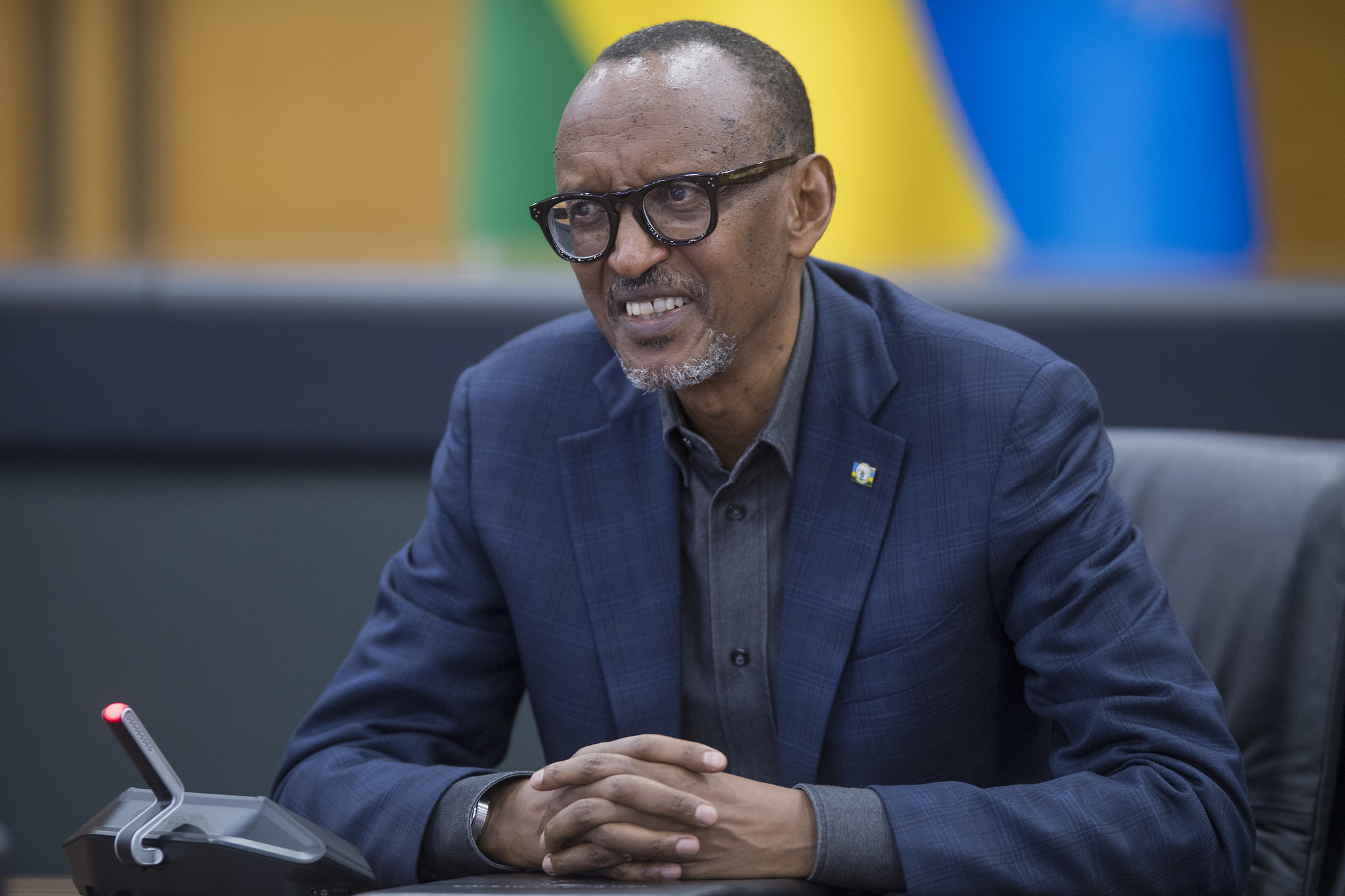Rwanda, too, needs to make amends

Rwanda accuses Congo-Kinshasa of being unable to put its house in order; it, too, must deal with the refugee question, 245,000 of whom are in eastern DRC.

President Paul Kagame. Courtesy: Paul Kagame social media.
The current conflict in the eastern Democratic Republic of Congo was ignited in 1996 when the Alliance of Democratic Forces for the Liberation of Congo (AFDL), a coalition of Rwandan, Ugandan, Burundian and selected Congolese dissidents launched a war against Zaire, toppled Mobutu Sese Seko and brought Laurent-Désiré Kabila to power. The eastern DRC has not known peace since.
The interest of Rwanda in the eastern DRC predates the AFDL. The war launched by the AFDL against Congo-Kinshasa was preceded by a four-year civil war culminating in the Genocide Against the Tutsi in Rwanda. Millions of Rwandans fled across the border to seek refuge in the DRC as a result. Among these refugees were the remnants of defeated Rwanda forces and militia responsible for the genocide.
Since then, the Rwandan government has maintained that there are negative forces resident in eastern DRC out to destabilise Rwanda, a reference to the Democratic Forces for the Liberation of Rwanda (FDLR). The FDLR is an armed group formed by Rwandan refugees in DRC who, following their forcible eviction from Rwanda during the genocide, resorted to armed struggle as a means to retake power in Rwanda. Despite Rwanda’s armed forces launching military operations against the FDLR on numerous occasions on Congolese soil in collaboration with the Congolese army, the Rwandan government still insists that the FDLR is a threat to Rwanda’s security. Moreover, there are 245,000 Rwandan refugees in DRC whose return to their motherland must be voluntary and conducted in conditions that guarantee their security and dignity.
Rwanda’s interests and concerns must be considered if a lasting solution to the conflict in the eastern DRC is to be found. In the same way the Congo-Kinshasa government has been asked to make amends and solve its internal problems, the Rwandan government must follow suit and make amends, too.
While Rwanda is not to blame for the problems in the DRC, are the issues of Rwandan refugees hosted in the DRC and armed groups operating in eastern DRC Rwanda’s problems that its government must resolve?
Freedom House reports have consistently shown that Rwanda is not a free country; civil liberties and political rights are not respected. While human rights organisations have regularly demonstrated that the Rwandan government violates the rights of those who dare to challenge or contradict its narrative. Despite government efforts toward developing Rwanda, the country’s economy still struggles, especially in those sectors needed to achieve genuine social and economic transformation for the wider population. Rwanda thus produces refugees for all sort of reasons, political and economic rather than just historical.
In addition to Rwandan refugees and armed groups operating in the eastern DRC, there are other Rwandan refugees scattered across the neighbouring states of Burundi, Tanzania and Uganda. There are Rwandan political groups that oppose the ruling party in Rwanda and agitate for a voluntary and safe return to their motherland so they can exercise political rights without any restrictions. These groups are to be found in many parts of the world, their members based in Europe, America and Africa.
The Rwandan government claims these political groups are linked to armed dissident groups in eastern DRC. There have been political tensions between Rwanda on the one hand, and Burundi and Uganda on the other over allegations that the latter two states are supporting opposition figures who want to overthrow the Rwandan leadership.
Thus, for lasting peace in the eastern DRC and in the African Great Lakes region, the Rwandan government must also do as the DRC government is doing and make amends. It must hold an inter-Rwandan dialogue with its dissident voices in and out of the country and agree on a political framework that guarantees the voluntary and safe return of refugees, the disarmament of Rwandan armed groups in eastern DRC, and ensures respect for civil liberties and political inclusion in the country.







I don’t understand why this alleged politician consistently chooses to side with Rwanda’s adversaries. She was first discovered to be one of the terrorist group’s financial backers; however, you have now switched sides. Tell us, lady, whether you’re working for Rwandans or someone else.
Calling for dialogue in Rwanda to solve internal political or social problems so these do not affect neighbouring states, is not siding with Rwanda’s adversaries. In contrast, not engaging Rwandans into a dialogue so they sort out their differences is to make it easier for the enemies of Rwanda to continue taking advantage of them. It is not by ignorance or amusement that “seeking solutions through dialogue” has been made one of Rwanda’s constitution principles. It is not for the same reasons that, Rwandans held a national dialogue in 1999 in attempt of setting how the country should be governed and resolve issues such economic, reconciliation as well as refugees problem. Rwandans and its leadership have always believed in dialogue. So demanding or calling for it is no to sideline with Rwanda’s adversaries.
Where were those so called human rights organisations in 1994?
Whether you are either with(Rwandan),or the enemy,
The end will justify the mean.